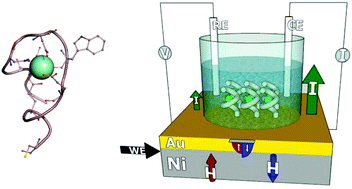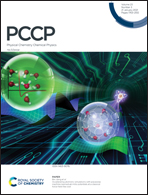Towards peptide-based tunable multistate memristive materials†
Abstract
Development of new memristive hardware is a technological requirement towards widespread neuromorphic computing. Molecular spintronics seems to be a fertile field for the design and preparation of this hardware. Within molecular spintronics, recent results on metallopeptides demonstrating the interaction between paramagnetic ions and the chirality induced spin selectivity effect hold particular promise for developing fast (ns–μs) operation times. [R. Torres-Cavanillas et al., J. Am. Chem. Soc., 2020, DOI: 10.1021/jacs.0c07531]. Among the challenges in the field, a major highlight is the difficulty in modelling the spin dynamics in these complex systems, but at the same time the use of inexpensive methods has already allowed progress in that direction. Finally, we discuss the unique potential of biomolecules for the design of multistate memristors with a controlled- and indeed, programmable-nanostructure, allowing going beyond anything that is conceivable by employing conventional coordination chemistry.

- This article is part of the themed collection: PCCP Perspectives


 Please wait while we load your content...
Please wait while we load your content...